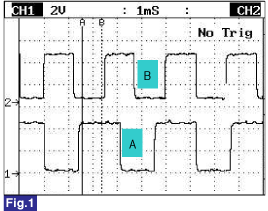Perform the "STALL TEST" with gear position "1"
Specification : 2000~2700 engine rpm

UD/C | OD/C | REV/C | 2ND/B | LR/B | OWC | |
P | ● | |||||
R | ● | ● | ||||
N | ● | |||||
D1 | ● | ● | ● | |||
D2 | ● | ● | ||||
D3 | ● | ● | ||||
D4 | ● | ● | ||||
L | ● | ● | ● |
Stall test procedure in D1 and reason
Procedure
1. Warm up the engine
2. After positioning the select lever in "D" ,depress the foot brake pedal fully after that, depress the accelerator pedal to the maximum
* The slippage of 1st gear operating parts can be detected by stall test in D
Reason for stall test
1. If there is no mechanical defaults in A/T, every slippage occur in torque converter.
2. Therfore, engine revolution is output, but input and output speed revolution must be "zero" due to wheel's lock.
3. If 1st gear operating part has faults, input speed revolution will be out.
4. If oupput speed revolution is output. It means that the foot brake force is not applied fully. Remeasuring is required.





